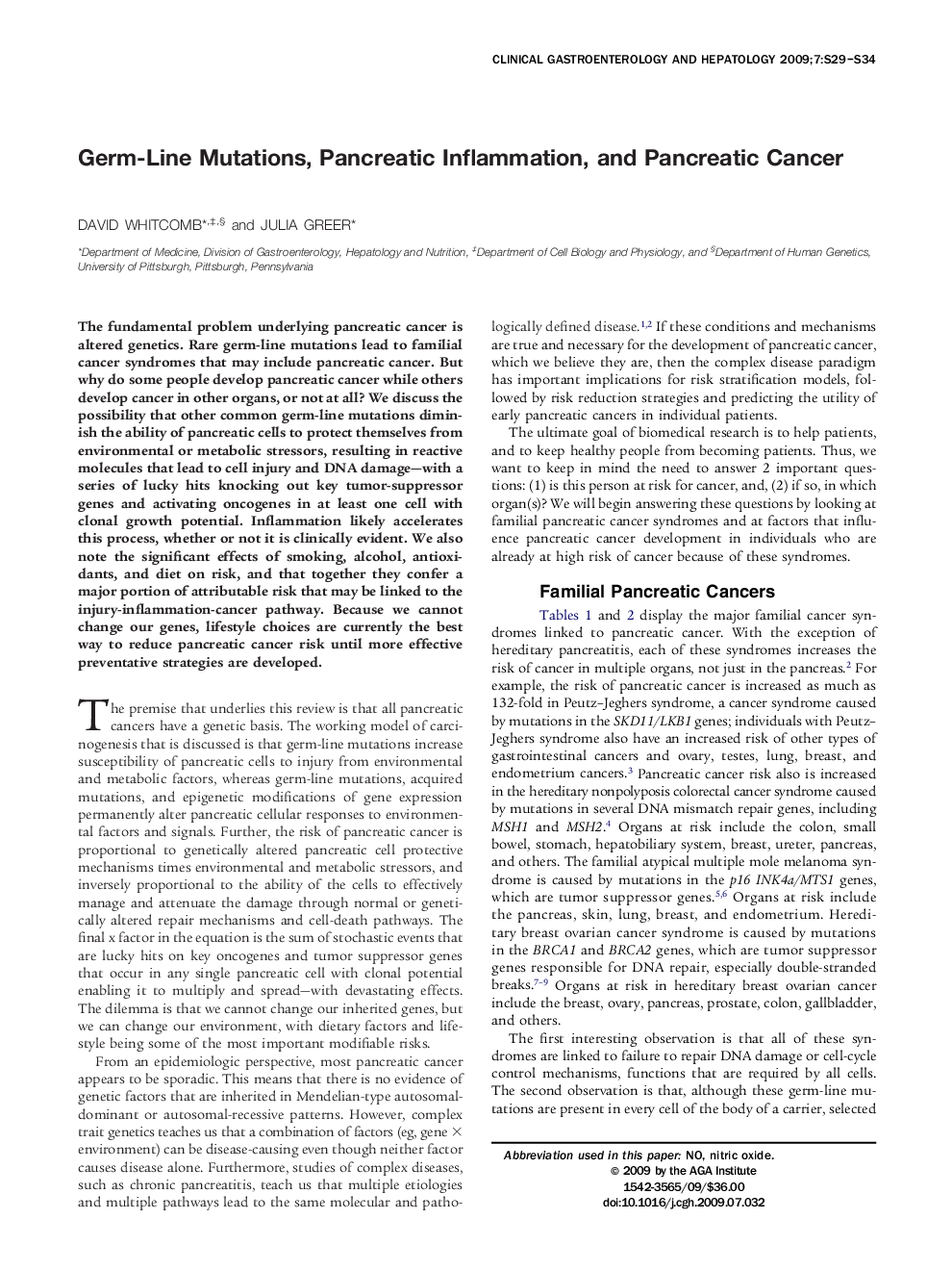| Article ID | Journal | Published Year | Pages | File Type |
|---|---|---|---|---|
| 3284037 | Clinical Gastroenterology and Hepatology | 2009 | 6 Pages |
Abstract
The fundamental problem underlying pancreatic cancer is altered genetics. Rare germ-line mutations lead to familial cancer syndromes that may include pancreatic cancer. But why do some people develop pancreatic cancer while others develop cancer in other organs, or not at all? We discuss the possibility that other common germ-line mutations diminish the ability of pancreatic cells to protect themselves from environmental or metabolic stressors, resulting in reactive molecules that lead to cell injury and DNA damage-with a series of lucky hits knocking out key tumor-suppressor genes and activating oncogenes in at least one cell with clonal growth potential. Inflammation likely accelerates this process, whether or not it is clinically evident. We also note the significant effects of smoking, alcohol, antioxidants, and diet on risk, and that together they confer a major portion of attributable risk that may be linked to the injury-inflammation-cancer pathway. Because we cannot change our genes, lifestyle choices are currently the best way to reduce pancreatic cancer risk until more effective preventative strategies are developed.
Related Topics
Health Sciences
Medicine and Dentistry
Gastroenterology
Authors
David Whitcomb, Julia Greer,
